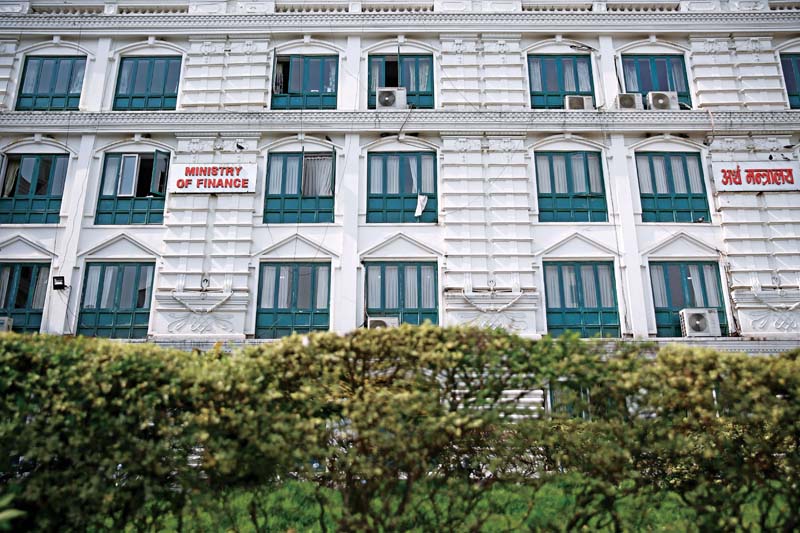Govt vows to achieve 7.2 per cent growth target in next fiscal
Kathmandu, May 30
The government has said that it will keep alive the momentum of high growth rate in next fiscal through proper implementation of the budget.
Deputy Prime Minister and Finance Minister Krishna Bahadur Mahara has said that increasing economic activities at the local level, accelerated post-earthquake reconstruction, execution of national pride and top priority projects, agriculture modernisation, regular supply of power to the industry sector and improved road network will provide necessary impetus to maintain the momentum of high growth.
As the provincial and national level elections are going to be held within January 21, 2018, they will definitely have an impact on economic growth, according to Mahara. “We will achieve the growth target in next fiscal as economic activities will rise due to increased government expenditure,” he said.
Mahara also defended the size of the budget despite low spending. He said that the size of the budget has been expanded to Rs 1,278.99 billion in this fiscal as the government is going to mobilise a large chunk of resources in post-quake reconstruction (Rs 146.18 billion), construction of strategic road networks (Rs 89.5 billion) and allocate necessary resources for provincial and national level elections.
“The major aspect of this fiscal budget is that we have sent a huge amount of resources to the local level, which is the initial step to build prosperous Nepal,” he said, adding, “Private investment will also increase at the local level as the local units will be spending huge resources for the development of their localities.”
Mahara also said that the grant to the local units has been allocated based on the population size, development status and cost of development in the absence of the Natural Resources and Financial Commission, which is supposed to finalise the grant amount for the local units.
The fiscal budget has allocated Rs 225.55 billion grant to 744 local units and Rs 7.14 billion to set up provincial structure in the next fiscal. Size of the recurrent budget has been increased substantially for the next fiscal as the grant amount to the local units has also been included as recurrent expenditure in the budget. Sixty-six per cent of the grant amount given to the local units will be spent for development works, as per Mahara.
Minister Mahara also expressed hope that the government will achieve the revenue collection target of Rs 730.05 billion along with increased economic activities in the country, stable political environment and improved investment climate. The government has raised the revenue collection target by 29 per cent for the next fiscal as compared to current fiscal without make any substantive changes to the tax rates. The target seems quite ambition as the average revenue collection growth in the previous years has been between 22 to 25 per cent.
Min Bahadur Shrestha, vice chairman of the National Planning Commission (NPC), has said that the federal budget will be able to address the structural problems of the economy to a large extent.
“It will generate more jobs, create entrepreneurs, boost production and deliver effective public service to people in their own localities,” he said. The budget has envisioned creating at least 100,000 entrepreneurs and jobs for 400,000 individuals in the next fiscal.
Finance Secretary Shanta Raj Subedi said the government has introduced measures through the fiscal policy for effective implementation of development projects.






